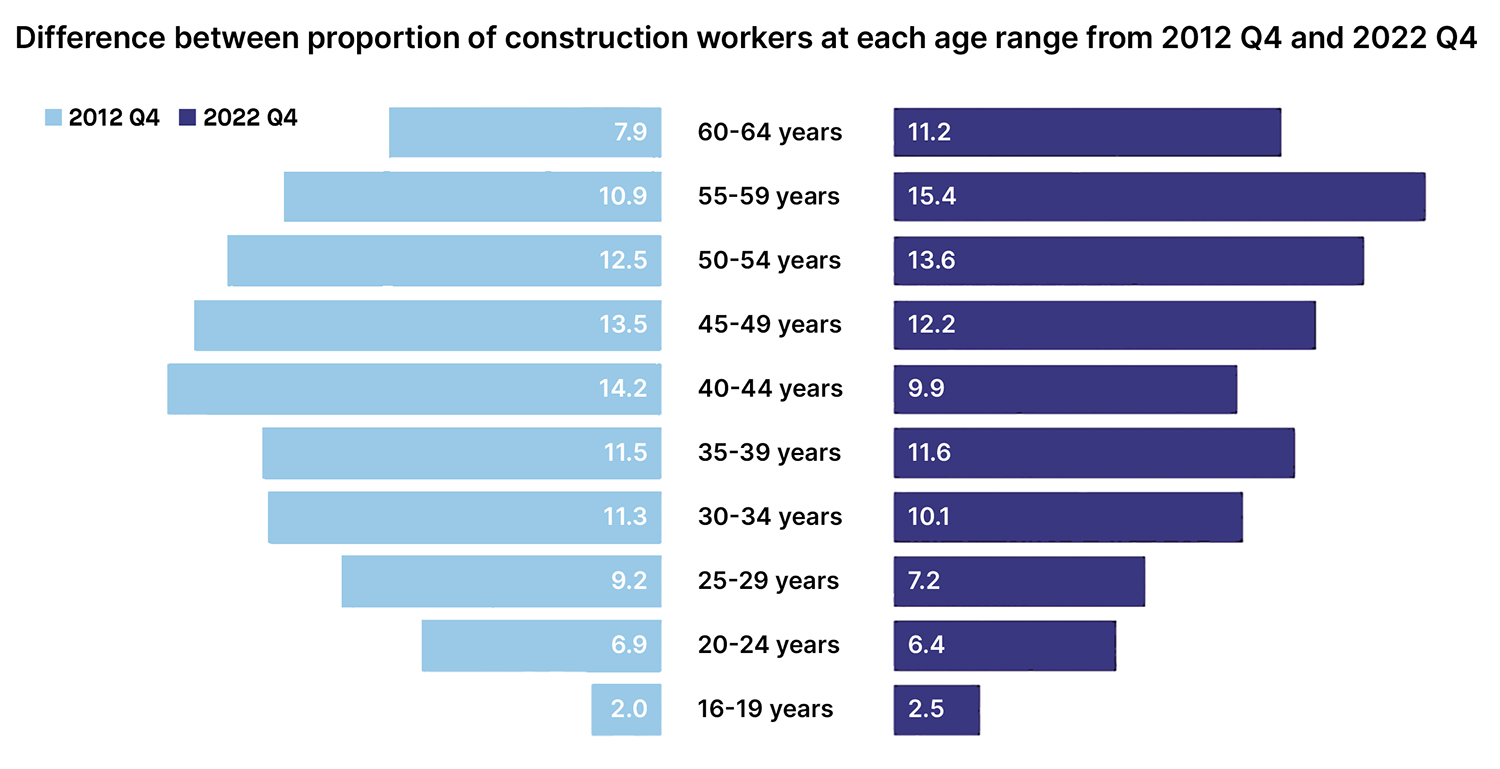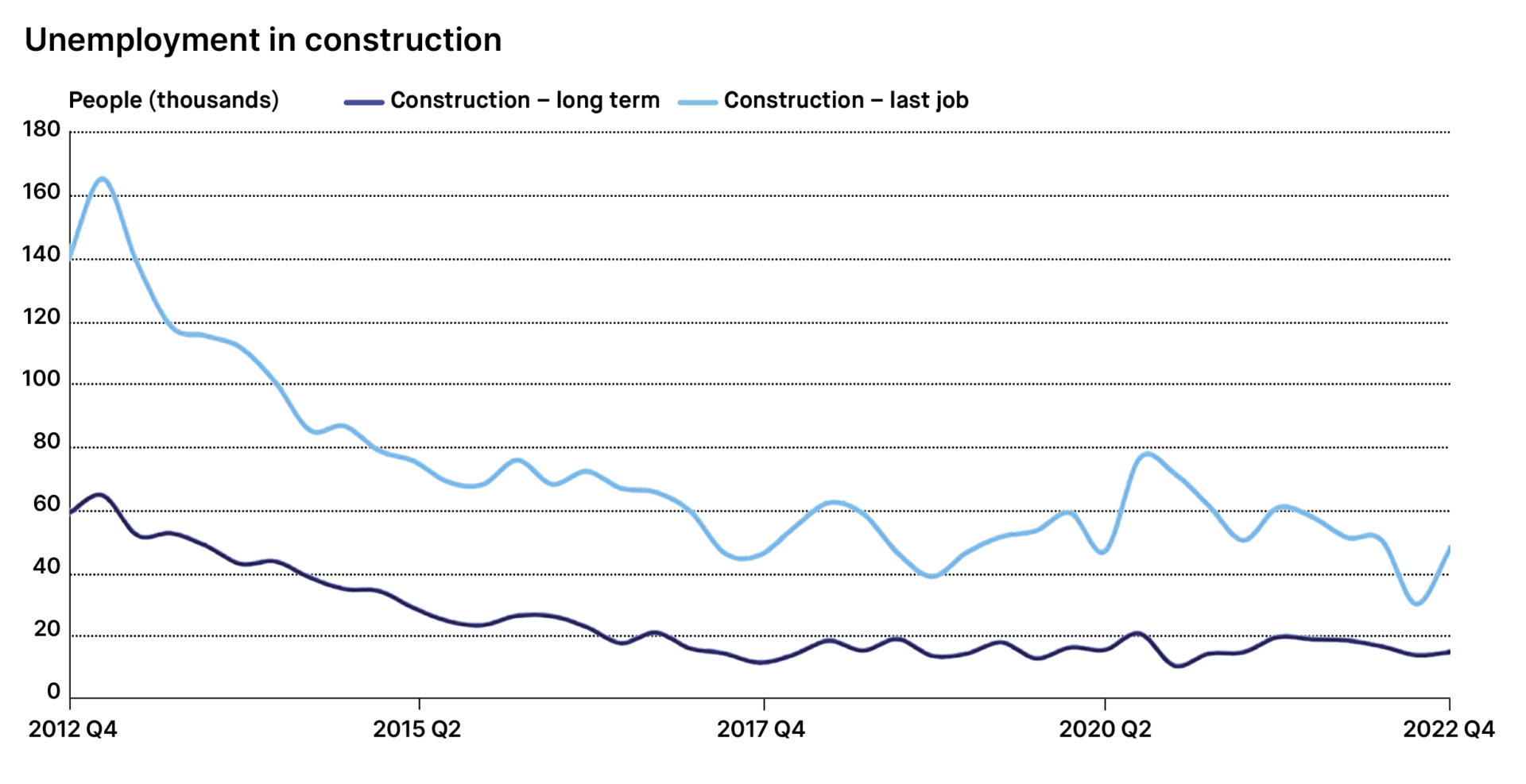
Digital transformation of the built environment is an urgent necessity given the industry’s skills crisis, says Ben Craven.
The challenge of skills shortages in the UK construction industry is not new, however it is becoming more and more apparent every year. Nationally, the government has made headlines with its approach to encourage retirees from various industries back into work.
Even if successful, this is only a quick fix that does not deal with much deeper structural issues in the sector.
The construction sector as a whole is ageing. Data from the Office for National Statistics in 2022 Q4 revealed that more than half of workers in the industry are over 45 – with 11.2% being less than six years away from receiving a state pension.
A decade ago the age distribution of the workforce was more balanced: 7.9% of workers in Q4 of 2012 were nearing retirement and 18.2% were under 30.
The rising age of the average construction worker isn’t a problem in and of itself, provided there’s a pipeline of new talent entering the workforce as people move towards retirement.

However, this trend is more concerning given the increase in early retirement prompted by the pandemic. With more people leaving the workforce earlier, the number of people employed in construction is falling, and this is being exacerbated by a shrinking foreign workforce following the UK’s exit from the EU. Overall, some 250,000 workers have voluntarily left the sector since the start of 2019.
Declining skills pool
With only a drip feed of new workers to replace them, and an already tight labour market – reflected by a low industry unemployment rate – firms must adapt to this shifting and declining skills pool.
Skills remain in high demand and, though the UK is set to enter a downturn, the contraction in gross domestic product is not expected to be particularly severe or to last beyond 2024 Q3. This means that, even though there is little expectation that it will reduce substantially, the labour market will naturally slacken.
Unless firms focus on improving labour efficiency, they risk being caught out by an even more constrained market once recovery gets underway and demand again rises.

One answer lies in productivity and boosting the industry’s capacity to do more with less labour.
Investment in technology and digitalisation will be critical. Artificial intelligence like OpenAI’s ChatGPT has captured the world’s imagination and tools like this have considerable potential for construction – from automating processes to driverless plant and accelerating the use of modern methods of construction.
The sector is a long way from full automation – personal experience will remain invaluable in construction environments when it comes to design, delivery and risk management. However, there is a significant opportunity to blend skilled people with new technology – addressing a skills gap and improving outcomes too.
Ben Craven is an associate director and lead economist at Turner & Townsend.











